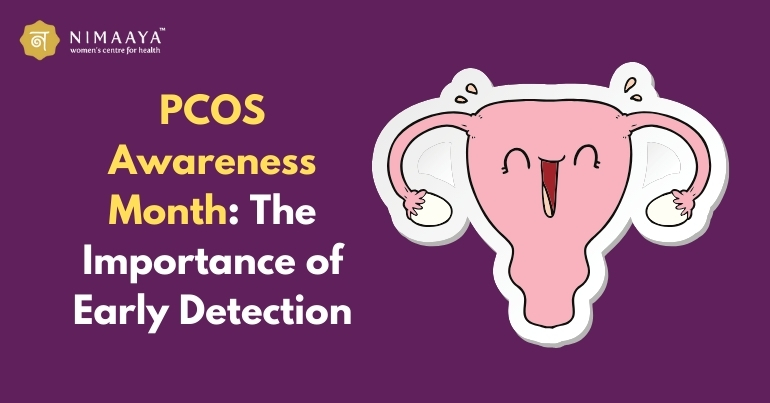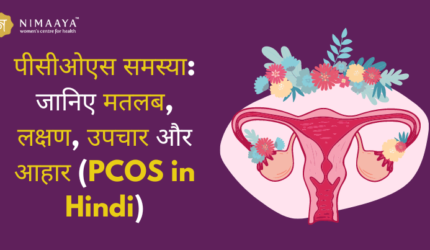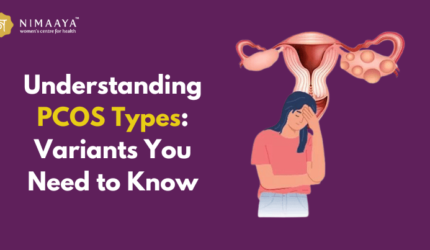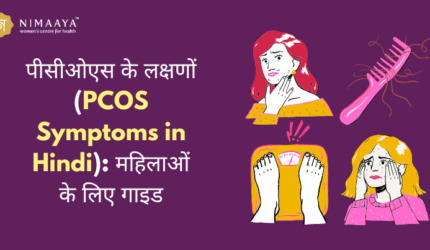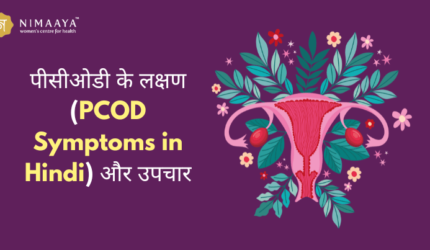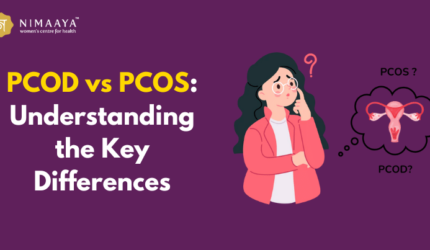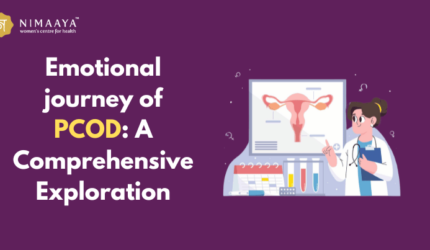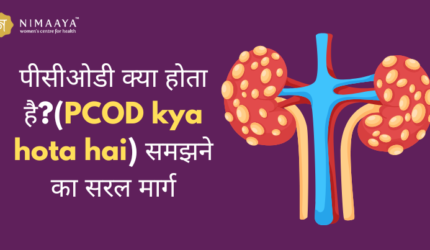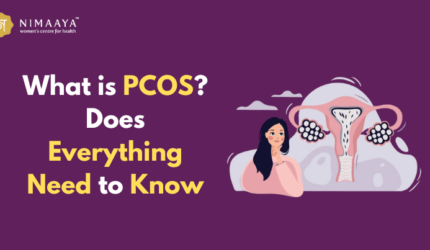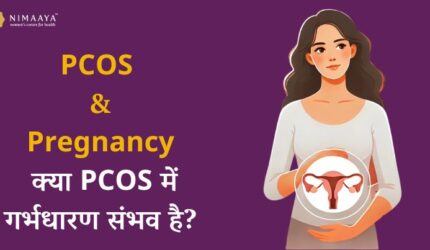Polycystic Ovary Syndrome (PCOS) is a common endocrine disorder that affects millions of women across the world. Its symptoms are often complex and varied, which makes it take a long time for some women to get diagnosed with it. September is PCOS Awareness Month, an important month for educating people about this sometimes misunderstood condition. Additionally, during this month, there is an emphasis on research funding and more effective treatments focused on women suffering from PCOS.
What is PCOS?
PCOS refers to a hormonal disorder that affects the ovaries among other body systems. Women suffering from PCOS usually have very long or irregular menstrual cycles because their ovaries develop multiple small fluid-filled sacs (follicles) and fail to ovulate consistently. Hormonal imbalance resulting from this disorder can lead to many PCOS sign and symptoms ranging from mild to severe ones thus affecting general well-being and fertility status.
PCOS is believed to be caused by both genetic factors like a family history of diabetes along environmental factors such as resistance to insulin and increased levels of male hormones known as androgens which are normally produced in small amounts by women.
Key Signs and Symptoms of PCOS
The syndrome of PCOS differs from woman to woman but there are hallmark signs and symptoms that you need to watch out for. It is important to note these symptoms early enough for faster diagnosis and management.
1. Irregular Periods
The most common and telltale sign of PCOS is having irregular periods. Some women may have infrequent periods (less than nine in a year) while others may experience prolonged periods or heavy bleeding which makes this irregularity due to lack of ovulation leading to disturbance in the menstrual cycle.
2. Excess Androgen Levels
Elevated levels of androgens can lead to polycystic ovary syndrome, which causes:
- Hirsutism: excess hair growth on the face, chest, back, and other areas
- Acne: persistent acne that is impervious to traditional treatments
- Male-pattern Baldness: hair thinning or loss on the scalp
3. Polycystic Ovaries
Enlarged ovaries containing multiple small cystic follicles are a common feature found among women with polycystic ovary syndrome that may sometimes contain undeveloped eggs. This symptom often detected by transvaginal ultrasound is one major criterion for diagnosing PCOS.
4. Weight Gain and Difficulty Losing Weight
Gaining weight, especially around abdominal areas is something many individuals living with PCOS go through. Losing weight can be hard food and working out might not help out much if one has insulin resistance-a universal characteristic of PCOS.
5. Infertility
Infertility is one of the most devastating symptoms associated with PCOS (Polycystic Ovary Syndrome). The absence of ovulation for women having this condition makes it difficult to conceive. But even so, it should be understood that although having this syndrome is among the major reasons for being barren it does not make them infertile, many women patients who have gotten proper medicine therapy can still conceive.
6. Skin Changes
PCOS can darken the skin, especially within creases on your neck, and under breasts, as well as groin features. This type of condition which has been referred to as ‘acanthosis nigricans’ is typically associated with people who are insulin resistant.
7. Mood Disorders
Hormonal imbalances that arise from PCOS also affect mental health status. It has been noted that such females face elevated rates of depressive moods and anxiety disorders along with mood swings.
8. Metabolic Issues
A close relationship exists between PCOS and insulin resistance leading to increased chances for type 2 diabetes occurrence. Additionally, women suffering from this ailment have a higher probability of developing metabolic syndrome characterized by a group of health issues including hypertension, high fat levels in the blood circulation system, and increased sugar content in the bloodstream.
Causes and Risk Factors of PCOS
Although PCOS aetiology is not fully understood by researchers, they believe that several factors might be implicated in its onset.
1. Genetics
A family history of PCOS raises the chances of getting the condition. If your mother or sister has had PCOS before, you have a higher chance of being diagnosed with it.
2. Insulin Resistance
Insulin resistance is one of the most significant contributors to PCOS. When faced with insulin resistance in its body cells, the pancreas produces a greater amount of insulin so as to make up. This excess insulin can lead to elevated androgen levels, which disrupt ovulation and contribute to the symptoms of PCOS.
3. Obesity
Women of any size can indeed be affected by PCOS; however, the condition may become more severe in obese women. The excess body fat leads to insulin resistance which consequently worsens the hormonal imbalance.
4. Hormonal Imbalance
In women who suffer from PCOS, androgens and luteinizing hormone (LH) levels are generally elevated while follicle-stimulating hormone (FSH) concentration is low. These changes in hormone levels disrupt ovulation resulting in numerous signs that characterize this syndrome known as polycystic ovary syndrome.
Can PCOS Be Cured? Exploring Treatment Options
A commonly asked question regarding PCOS is whether it can be cured or not. The answer is that there is no cure for PCOS. However, advances in medical science have produced ways to manage it well. Early diagnosis combined with proper treatment will help to alleviate these symptoms and prevent long-term complications such as infertility, diabetes, and heart disease.
1. Lifestyle Changes
Maintaining a healthy body weight is important for managing PCOS. Loss of only 5 to 10% of one’s body weight may improve symptoms like irregular periods, insulin resistance, and infertility significantly. Regular exercise and eating a balanced diet consisting of whole foods, lean proteins, and healthy fats are important in managing PCOS.
2. Medications
Depending upon the extent of symptoms various kinds of medications might be given:
Hormonal Birth Control
Birth control pills as well as patches or vaginal rings regulate the menstrual cycle and lower androgen levels hence alleviating symptoms like acne and hirsutism.
Anti-androgen Medications
These types of drugs forbid the consequences of androgens therefore minimizing excessive hair growth or acne.
Metformin
It is mainly prescribed for women having trouble with insulin resistance; it improves body sensitivity towards insulin while also aiding in weight loss and regulating menses.
3) Fertility Treatments
Ovulation-inducing medications for example clomiphene citrate and letrozole or IVF are needed by some women who face problems in getting pregnant.
4) Holistic Approaches
In addition to conventional treatment methods, some females have effective curative effects through alternative methods like acupuncture, management techniques for stress as well as dietary supplements such as inositol omega 3 fatty acids vitamin D, etc.
Managing PCOS: A Lifelong Journey
PCOS is a condition that demands lifelong care. Regular check-ups with healthcare providers like endocrinologists and gynecologists are essential in monitoring symptoms and making treatment adjustments accordingly. Also, PCOS patients must take into consideration their mental well-being since the condition can cause significant emotional impact.
1. Lifestyle Component
One of the most effective methods of managing PCOS is through sustainable modifications in lifestyle. Eating balanced diets, engaging in physical activities regularly, and controlling weight can help lower the chances of developing complications such as diabetes or heart disease. Additionally, women suffering from this disorder are advised to manage stress by practicing yoga, meditation, or counseling sessions aimed at enhancing their mental wellness.
2. Psychological Support
Mental health is just as affected by PCOS as physical health. The journey towards infertility, dealing with hirsutism, and weight issues can make you feel lonely; anxious, or depressed are some of its outcomes. Therefore, it is important for women struggling with PCOS to seek psychological help and share their experiences with others who have gone through similar challenges.
Nimaaya IVF Center: A Trusted Partner in Fertility and PCOS Care
Women who have fertility problems mainly due to POLYCYSTIC OVARIAN SYNDROME (PCOS) can find solace at Nimaaya IVF Center located in Surat. It is one of the best infertility clinics in Surat providing personalized infertility treatments, state-of-the-art technology, and an expert medical team.
1. Comprehensive Fertility Solutions
The all-encompassing fertility solutions that Nimaaya offers are customized for each woman’s need depending on the severity of PCOS (PCOS Awareness Month). The specialists collaborate with their patients in a bid to provide optimal results in surgery from ovulation induction to sophisticated in-vitro fertilization procedures.
2. Hormonal Balance and PCOS Management
Nimaaya IVF Center also provides comprehensive hormonal treatment to women suffering from PCOS in addition to fertility solutions. The center employs both pharmacological and lifestyle measures aimed at restoring normal menstruation cycles, rectifying insulin resistance, and reducing androgen production levels. This team offers continuous support enabling women to manage their symptoms while enhancing their quality of life.
3. Patient-Centered Care
What is unique about Nimaaya is its emphasis on patient education and empowerment. The center believes that it is important for women to have a proper understanding and tools for handling their own PCOS management. This clinic has been providing women with workshops, support groups, as well as individualized care plans that are meant to assist them feel supported during all stages.
Conclusion: The Importance of PCOS Awareness Month
PCOS Awareness Month reminds us of the need for early diagnosis, appropriate management and continued assistance for those suffering from this problem. This means that women are capable of living fulfilling lives regardless of the challenges brought on by this condition. Seeking specialized help from reputable institutions like Nimaaya IVF Center can ease these fertility and general health burdens along the way.
PCOS Awareness Month aims at breaking the silence around this problem by creating awareness, offering assistance, and encouraging women on their health journey; thus, enabling them to take control of their bodies.
FAQs
1) What is PCOS Awareness Month?
Every September, Polycystic Ovary Syndrome (PCOS) Awareness Month is celebrated. During this period, people are encouraged to know more about the disorder among women to help them identify it early enough for appropriate therapeutic measures.
2) What causes PCOS?
The cause of PCOS is not clear but it may stem from environmental and genetic factors. The leading contributors to the emergence of this condition are insulin resistance, hormonal imbalances and elevated amounts of male hormones.
3) Is PCOS hereditary?
Indeed, there is proof that suggests Polycystic Ovary Syndrome can be an inherited disorder. Such families have a higher likelihood of developing this ailment if certain members like mothers or sisters are affected by it.
4) Does PCOS affect fertility?
Yes, PCOS is one of the principal reasons why women cannot have children due to irregular periods resulting in a lack of egg release. But there are still chances for some women suffering from this ailment who want to have kids to do so through the use of fertility assistance methods like ovulation-inducing drugs or test tube babies (IVF).

